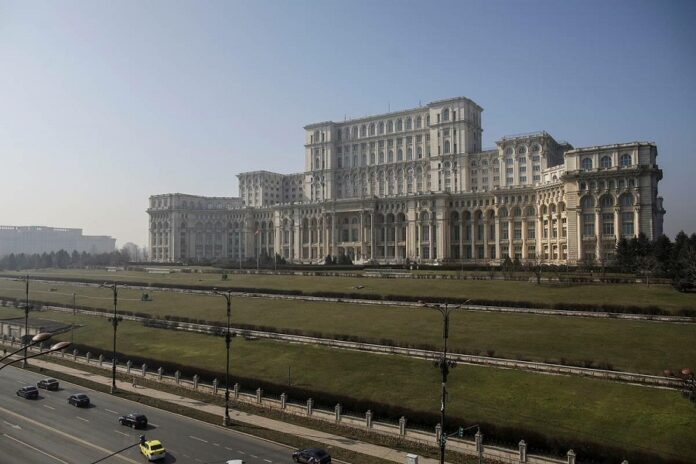Romania‘s parliament said it approved the 2024 state budget, which projects a deficit equivalent to 5% of gross domestic product (GDP) and 3.4% economic growth, according to See News.
The budget for next year was adopted with 299 votes in favour and 82 against, according to data posted on the website of the parliament’s lower chamber on Wednesday.
MPs from centre-right opposition Union Save Romania (USR) along with 27 other unaffiliated MPs voted against. Members of the far-right populist nationalist party Alliance for the Union of Romanians (AUR) left the plenary session before the vote.
“It is a budget for Romanians, not for politicians. It is a budget focused on development. Investments […] are larger than consumption” prime minister Marcel Ciolacu told lawmakers after the budget was approved.
In 2024, revenues are estimated at 33.8% of GDP, up from 32.9% in 2023, a copy of the draft budget plan posted on the finance ministry’s website showed. Expenditures are projected at 38.8% of GDP, virtually unchanged from the share estimated for 2023.
Investments are projected at a record-high 120 billion lei ($26.5 billion/24.1 billion euro), or 7% of GDP, the prime minister said in an earlier government meeting.
Public sector wages, excluding those of high-ranking officials, are set to grow by 5%, while pensions are projected to increase in line with the 13.8% inflation rate. Ratings agencies have warned earlier that these plans heighten fiscal risks.
The minimum gross monthly wage is also set to grow, from 3,300 lei to 3,700 lei, in July.
Romania’s fiscal watchdog estimates a cash deficit in the budget equivalent to around 6.4% of GDP, 1.4 percentage points higher than the projection outlined in the state budget.
Employer association Concordia also criticised the state budget for being built on unrealistic revenue estimates with no prior consultation with any industry.
Romania is subject to an excessive budget deficit procedure which aims to align the gap with the EU’s 3% ceiling by 2024. Failing to reduce the fiscal shortfall could lead to the suspension of European funding.
The budget plan must now be endorsed by president Klaus Iohannis to become law.


